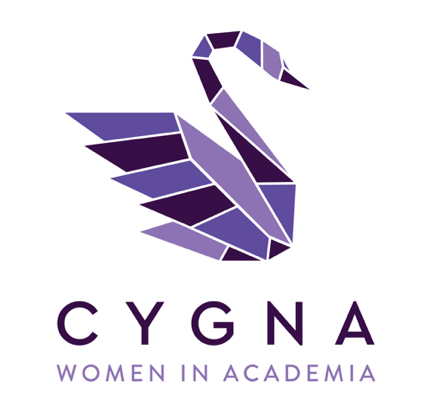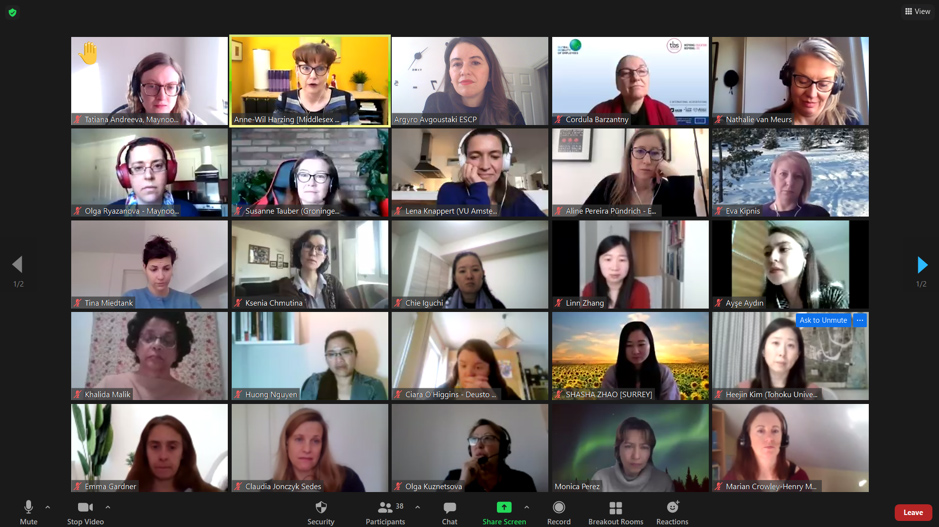Although progress towards gender equality has been made, research findings have shown that there are still significant differences between men and women on various dimensions. One key finding presented in the Global Gender Gap Report of the World Economic Forum 2020 is that gender parity will not be achieved in the next 100 years. An important area of concern is that female participation in the labour market has slowed down while financial disparities still exist, and in certain contexts they are even increasing. Another report based on the 2015 European Working Conditions Survey shows that career prospects are slightly better overall for men than women, especially in higher level positions. A piece published recently in the mainstream press revealed that in the FTSE100, despite efforts to include more women in boards, men still hold the positions of greatest power, such as board chairs or senior independent non-executive directorships.
Is it possible that women do not get what they want – e.g. a promotion or pay increase – simply because they are less likely to ask than men? A study published in Industrial Relations: A Journal of Economy and Society on Australian employees reveals that women actually do ask for raises as often as men but they do not get them, which suggests that requests for advancement are treated differently depending on the gender of the employee.
More efforts are needed to reduce inequality and the Matilda effect
One can observe a similar pattern in academia, although there is significant variation according to, for example, country, universities, and research field. Cornell professor Margaret Rossiter introduced the term Matilda effect for a systematic under-recognition of female scientists, often attributing their work to their male colleagues. Prior research explains that there is evidence of a bias – whether conscious or unconscious – against female academics, resulting in women being treated less favourably than men. Indicatively, women tend to receive fewer grants and awards, are cited less, are often perceived as less competent, and receive less mentoring or training. In addition, a recent report by LERU, an association of European research universities, indicates that women seem to be more deprived than men; there is still a gender pay gap while at the same time women in academia hold more part-time jobs and precarious contracts, do not reach the most senior positions in the same proportion as men do, are more likely to drop out from their research career, and more likely to face biases against their qualifications, among other factors.
It is clear that good efforts are undertaken but given these findings, they do not seem to be enough. One can only wonder why. Is it possible that we still fail to recognize and address certain biases? It is possible that we may not even be aware of certain views we have, the language we use, and their full implications. And what can we do about it?
Certainly, we have to continue working on it. There are various initiatives aiming at raising awareness, making additional progress, and promoting “positive” action. Any initiative, small or big, will help. One such initiative is CYGNA.
Ever heard of the CYGNA group?

CYGNA is a group of female academics initially based in London and later expanded to include female academics from all over the world. The name CYGNA derives from the female version of the Latin word for SWAN (Supporting Women in Academia Network). It was established in June 2014 as a combined initiative of me, Anne-Wil Harzing, Linn Eleanor Zhang and Shasha Zhao.
The main objective of the group is to promote interaction among female academics and to provide a forum for learning, support and networking. The first meeting took place in October, 2014 at ESCP Business School, which fully embraced this initiative. To date, CYGNA has organised 38 meetings, covering research but also professional development topics.
The group has tackled, at various times, topics related to gender inequality in an effort to raise awareness and create a safe space where members can talk, exchange views, and share diverse opinions. Some of the topics discussed included “Women can have it all: How to balance research, leadership and family before and after Covid-19”, “Climbing up the academic career ladder: Structural constraints and female academics’ personal strategies” and “Female leadership before and after COVID-19”. Anne-Wil Harzing also shared resources discussing gender differences, such as “Would you ask a male academic the same question?” and “Wives of the organization – 30 years on…
“Many women in academia face biases and resistance”

The latest meeting was dedicated to “Resistance to gender equality in academia and how to overcome it”. The attendees were reminded that the problem is not just biases towards a particular gender, but that efforts and initiatives promoting gender equality sometimes fail because of resistance. CYGNA members shared resources, including a document from the Victorian Health Promotion Foundation (VicHealth). The document presents the range of resistance one might face when promoting gender equality: denial (we have no problem); disavowal (it is not my responsibility to do something about it); inaction (we have other things to do first); appeasement (yes, we must do something one day); appropriation (we would hire more women if they had more experience); co-option (what about men’s rights?); repression (we asked women but did not want the opportunity); and backlash (aggressive response).
Many women in academia face biases and resistance. By participating in relevant initiatives, by discussing and sharing, regardless of gender, one can learn and better understand the issue, and think of what we can do or avoid doing individually and collectively. In the end, this is about everyone having an equal chance, and when I say everyone, I mean everyone.
License and Republishing
The Choice - Republishing rules
We publish under a Creative Commons license with the following characteristics Attribution/Sharealike.
-
You may not make any changes to the articles published on our site, except for dates, locations (according to the news, if necessary), and your editorial policy. The content must be reproduced and represented by the licensee as published by The Choice, without any cuts, additions, insertions, reductions, alterations or any other modifications.
If changes are planned in the text, they must be made in agreement with the author before publication. - Please make sure to cite the authors of the articles, ideally at the beginning of your republication.
- It is mandatory to cite The Choice and include a link to its homepage or the URL of thearticle. Insertion of The Choice’s logo is highly recommended.
- The sale of our articles in a separate way, in their entirety or in extracts, is not allowed , but you can publish them on pages including advertisements.
-
Please request permission before republishing any of the images or pictures contained in our articles. Some of them are not available for republishing without authorization and payment. Please check the terms available in the image caption.
However, it is possible to remove images or pictures used by The Choice or replace them with your own. - Systematic and/or complete republication of the articles and content available on The Choice is prohibited.
- Republishing The Choice articles on a site whose access is entirely available by payment or by subscription is prohibited.
- For websites where access to digital content is restricted by a paywall, republication of The Choice articles, in their entirety, must be on the open access portion of those sites.
- The Choice reserves the right to enter into separate written agreements for the republication of its articles, under the non-exclusive Creative Commons licenses and with the permission of the authors. Please contact The Choice if you are interested at contact@the-choice.org.
Individual cases
Extracts: It is recommended that after republishing the first few lines or a paragraph of an article, you indicate "The entire article is available on ESCP’s media, The Choice" with a link to the article.
Citations: Citations of articles written by authors from The Choice should include a link to the URL of the authors’ article.
Translations: Translations may be considered modifications under The Choice's Creative Commons license, therefore these are not permitted without the approval of the article's author.
Modifications: Modifications are not permitted under the Creative Commons license of The Choice. However, authors may be contacted for authorization, prior to any publication, where a modification is planned. Without express consent, The Choice is not bound by any changes made to its content when republished.
Authorized connections / copyright assignment forms: Their use is not necessary as long as the republishing rules of this article are respected.
Print: The Choice articles can be republished according to the rules mentioned above, without the need to include the view counter and links in a printed version.
If you choose this option, please send an image of the republished article to The Choice team so that the author can review it.
Podcasts and videos: Videos and podcasts whose copyrights belong to The Choice are also under a Creative Commons license. Therefore, the same republishing rules apply to them.





